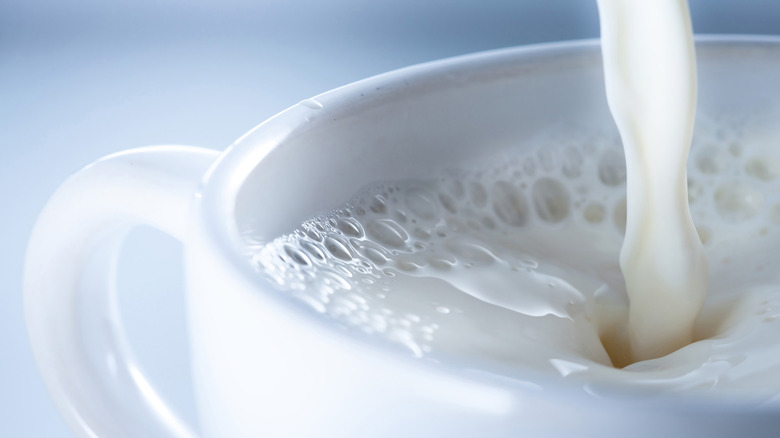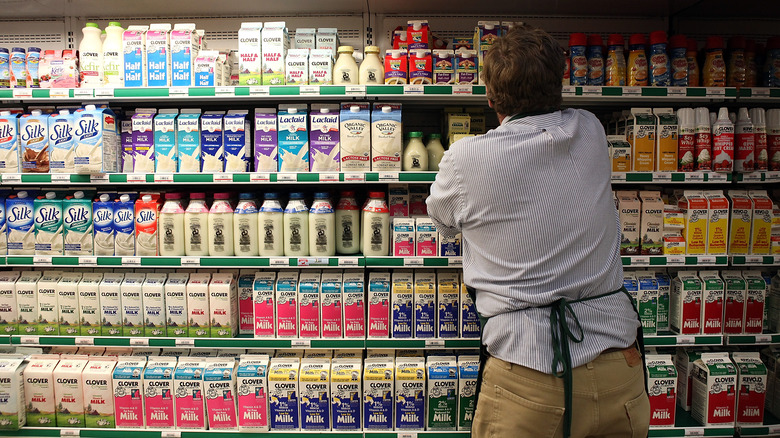Does Milk Really Make Your Bones Stronger?
We've heard it our entire lives — drink milk every day for strong bones. Heck, milk has even found a way to advertise this idea, bringing in celebrities and ad campaigns, to make sure everyone — young and old — is getting their daily dose of cow's milk. But in recent years, people have stopped believing the fad. Many people don't even drink cow's milk anymore, and opt for alternatives like oat milk or almond milk. Times are changing and milk is now, for many, seen as something to avoid instead of reach for at mealtime.
One of the most popular claims about milk involves bone health, so let's hash this out once and for all — does milk really make your bones stronger?
Drinking milk might not be all it's cracked up to be
In 1997, Harvard University conducted an extensive study where 77,000 female nurses were followed for 10 years, and by the end of the study, they found that there were no significant differences in bone health between those who drank more or less than one glass of milk a week. In 2014, two long-term Swedish studies revealed that drinking milk may even harm you — drinking a glass of milk a day was actually found to be associated with more broken bones and even early death.
However, while the results of the Swedish studies should be considered, there are other factors to think about before swearing off milk because you think it'll make your bones break. The BBC writes that while the study shows correlation, it doesn't necessarily prove that drinking milk daily causes those specific health issues. For example, people who already have bone health worries may be drinking more milk in hopes that they will strengthen their bones. Also, it's important to note that those who eat cheese and yogurt did not experience higher rates of fractures — it fact, it was the opposite.
Taking supplements are also important when talking about bone health
At the end of the day, it's important to get enough calcium in your body to protect your bones, but overall, you don't have to rely solely on milk consumption to get the bulk of the calcium you need. Bone development and avoiding osteoporosis rely heavily on your health as a whole, and not necessarily on how much milk you're drinking. Getting treatment for eating disorders, maintaining high levels of vitamin D, avoiding smoking and heavy drinking, eating a nutritious diet, and getting enough calcium are all ways to take care of your bones (via International Osteoporosis Foundation).
The National Academy of Sciences recommends calcium intake levels of 1,000 milligrams per day for those ages 19 to 50 and 1,200 milligrams per day for those ages 50 or over.
According to Cleveland Clinic, drinking a glass of milk a day is totally fine, as long as you mix it with proper supplements such as vitamins D and K every day as well. So, drink milk, but also make sure you're taking care of your overall health, too.


